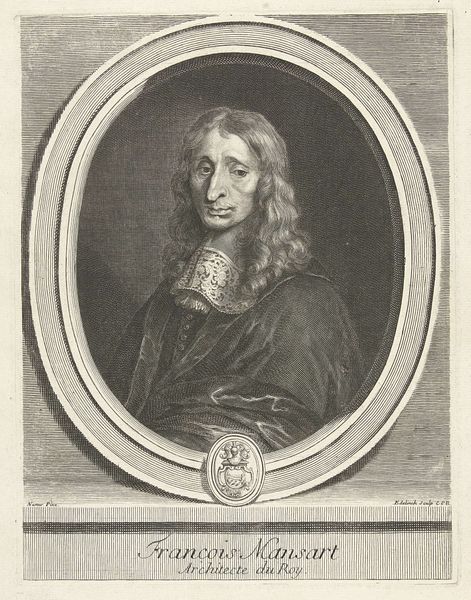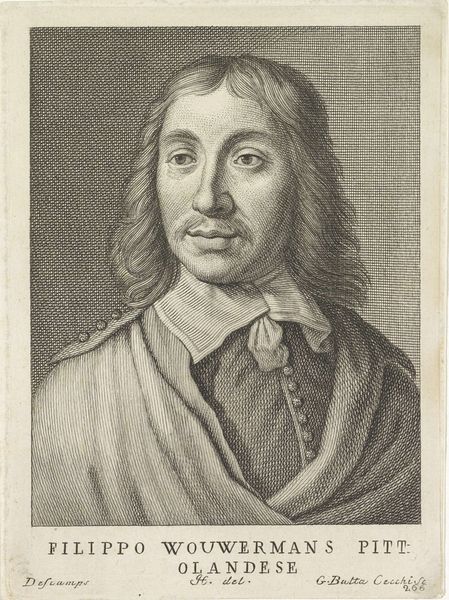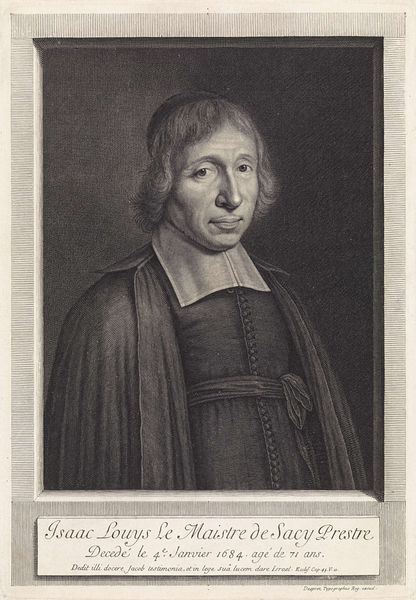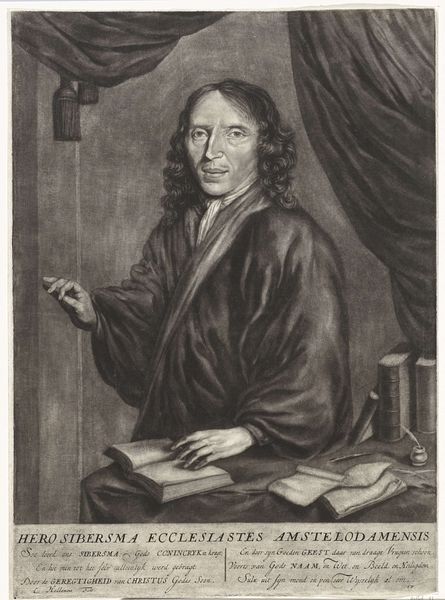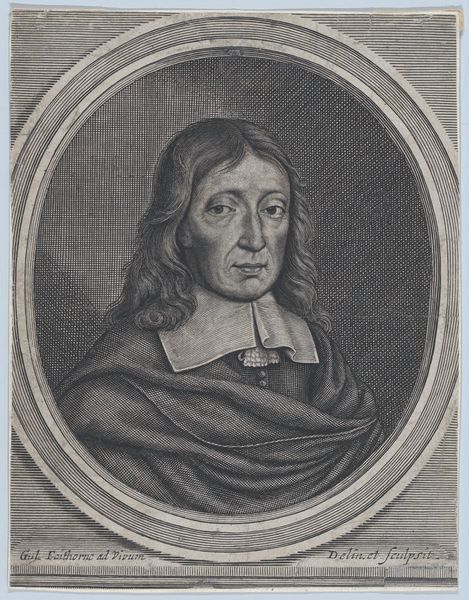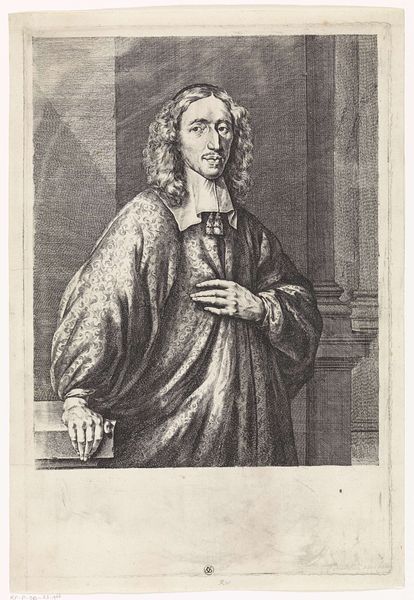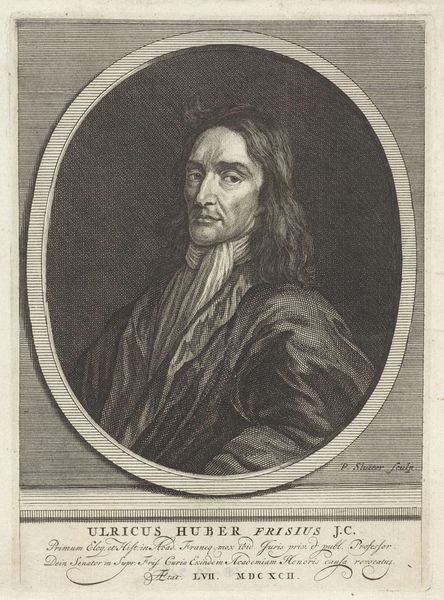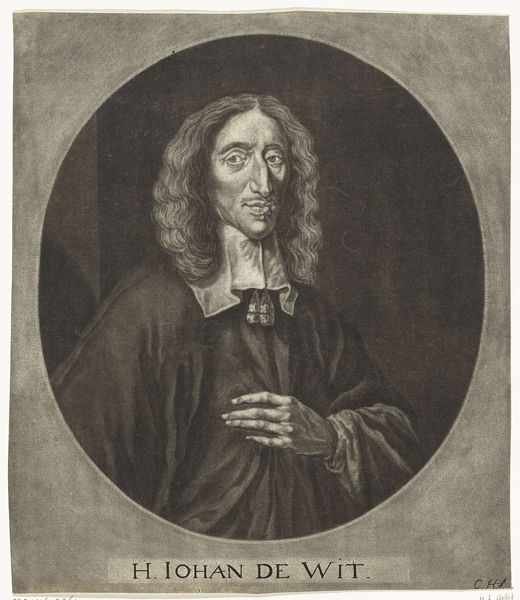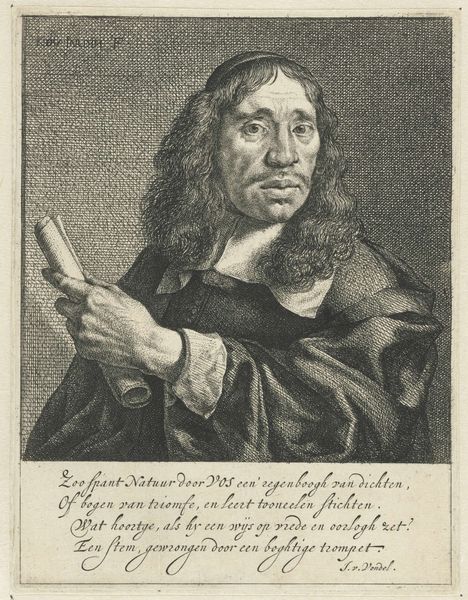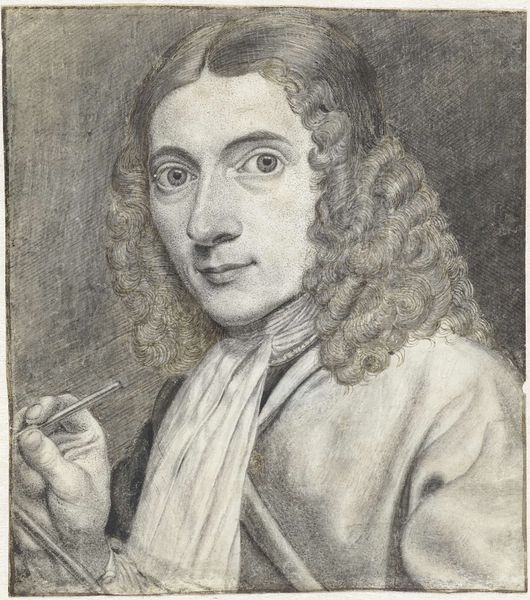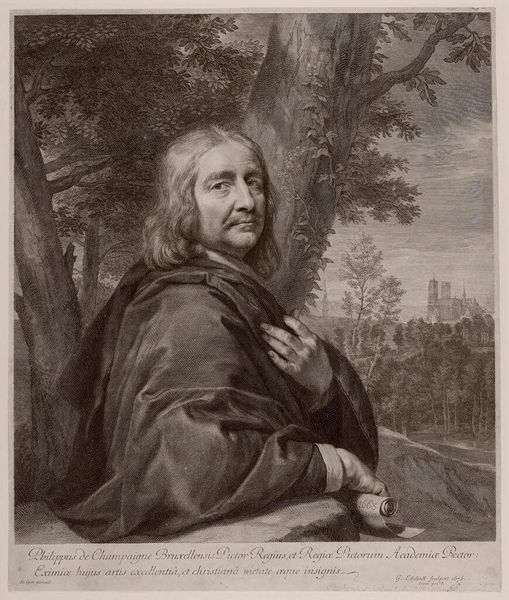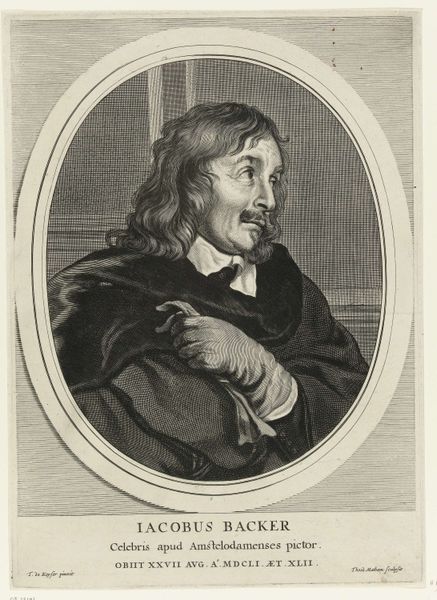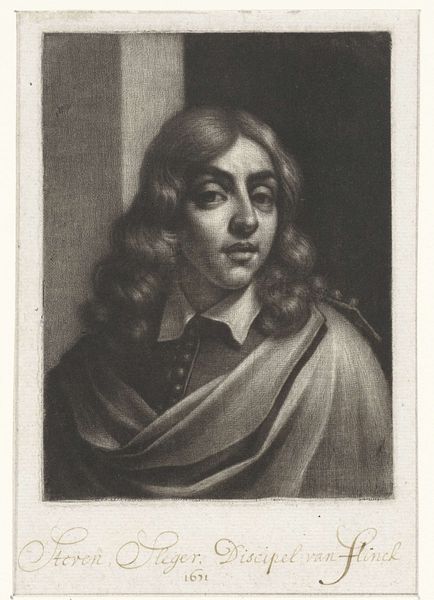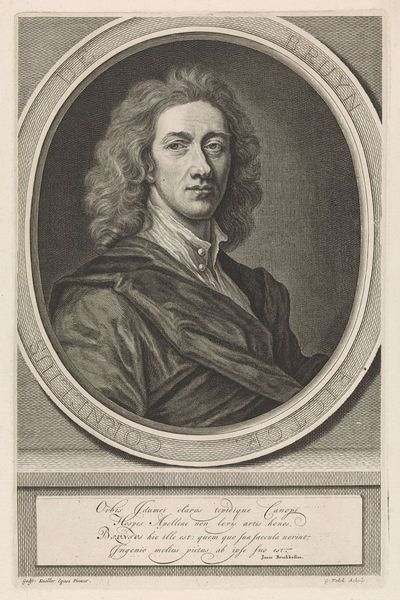
graphic-art, print, engraving
#
portrait
#
graphic-art
#
baroque
# print
#
old engraving style
#
portrait reference
#
limited contrast and shading
#
engraving
Dimensions: height 169 mm, width 118 mm
Copyright: Rijks Museum: Open Domain
Editor: This is a portrait of the painter Gonzales Coques, created sometime between 1616 and 1657. It's an engraving, so a print. What strikes me is the density of the lines; it almost looks like fabric itself. What stands out to you in this work? Curator: For me, the engraving technique itself speaks volumes. Look at the labor involved in creating those intricate lines, each one a deliberate mark of production. This challenges the traditional idea of the artist as purely an inspired genius. We see here instead skilled labor, almost craft, at play in service of art. Editor: So, you're focusing on the printmaking process as integral to understanding the piece? Curator: Absolutely. Think about the social context. Prints like these circulated widely, making art accessible beyond the elite. It democratizes portraiture in a way. Also, notice how the inscription below details Coques's patronage. Who consumed these images and what was their relationship to Coques? That patronage shapes the artwork's existence and dissemination. Consider how the act of making a multiple, through a print, reflects consumption patterns in society at that time. Editor: I hadn't thought about the print as an object of consumption itself. I was just focused on the image. Curator: Exactly! It’s the materiality of the print, its means of production and its role in the broader economy of image making that is crucial to interpreting it. The very ink, paper and skilled labor involved tell us stories about the conditions of artistic creation at the time. Editor: That really shifts my understanding. Thanks, it definitely provides another way to look at prints, and art in general!
Comments
No comments
Be the first to comment and join the conversation on the ultimate creative platform.
